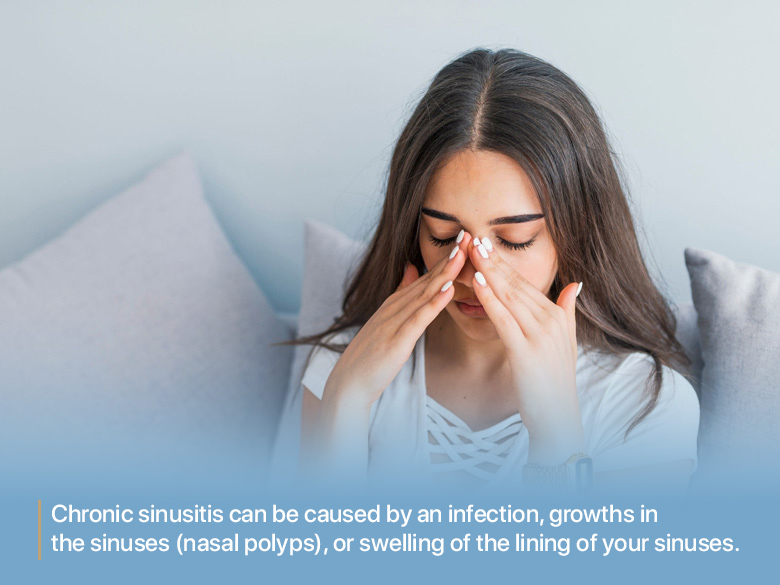Acetylcysteine is a commonly prescribed medication for treating sinus conditions like congestion and inflammation. This drug works by thinning out mucus in the sinuses and allowing trapped air to escape, which can help reduce swelling and pain in the area. It can also help reduce swelling in the sinuses and clear up any blockages that may be causing discomfort or breathing difficulties. Acetylcysteine may be administered orally or via an inhaler, depending on the severity of your condition.
Cysteine is an organic compound that occurs naturally in the human body. N-acetyl-L-cysteine (NAC) is the most common form when used as a supplement as well as medication. When the body receives NAC, it converts it to cysteine, which is then converted to glutathione, a powerful antioxidant. Although it has a wide range of applications, it is not available commercially as a nasal spray. NAC has been shown to successfully clear mucus from the body, suggesting that it could be a useful drug used to treat sinusitis.
Uses of Acetylcysteine
NAC is commonly used to treat acetaminophen poisoning caused by an overdose. It’s administered intravenously to help protect the liver and kidneys. Because of its mucolytic properties, it’s also often used to treat respiratory and sinus problems. Chronic obstructive pulmonary disease (COPD), acute respiratory distress syndromes (ARDS), angina (while merged with nitroglycerin), asthma, and other conditions have all been treated with NAC.
NAC is frequently used as a supplement to these treatments. Infection, swelling, as well as mucus drainage, are all things to consider when treating sinus problems. Antibiotics and corticosteroids can be used with NAC for the best outcomes. According to studies, combining NAC with standard corticosteroid treatment administered by atomized sinus rinse is an effective technique for breaking the cycle for the causes of acute rhinosinusitis.
Read More: Sinus Headaches? Important Facts You Should Know
How Does Acetylcysteine Work?
Acetylcysteine works by breaking down the mucus in your sinuses and also thinning the mucus in the air passages to make it easier to cough up the mucus and clear the airways. This helps to improve your breathing and makes it easier to clear your sinuses. The medication is available as a nasal spray, tablet, or liquid.
Chronic Sinusitis

Chronic sinusitis (also known as chronic rhinosinusitis) is a condition that causes swelling and inflammation in the sinuses for more than three months. This inflammation has an impact on how mucus flows from the sinuses. Chronic sinusitis can be caused by a variety of medical disorders, including sinus infections, allergies, and nasal polyps, to name a few. Standard therapies include corticosteroids, antibiotics, antifungals, allergy medicine (if allergies are suspected), and saline irrigation. Acetylcysteine is a supplement that can aid in the removal of mucus from the sinus cavities. In some circumstances, surgery may be necessary if no other treatments are helpful.
Symptoms and Signs
Acute or chronic sinusitis has similar symptoms. In most cases, chronic sinusitis does not result in a fever, and the symptoms linger longer. Allergy sufferers are more likely to develop chronic sinusitis.
- You may feel pain or pressure in your head, temples, cheeks, mouth, and from behind your eyes
- Nasal congestion
- A discharge from the nose (yellow or green)
- Postnasal drip occurs (a sensation of fluid dripping down the back of your throat, particularly at night or when lying down)
- Toothache
- Cough, which is usually worse at night
- Throat irritation
- Fever
- Breath problems
- Loss of olfactory perception
- Fatigue
- You’re not feeling great in general (malaise)
- Headache
Read More: Headache Hacks: 9 Easy Ways to Get Fast Relief
Normal Mucosal Function
A slight coating of liquid that covers the airways provides vital protection. Airborne particles and germs get trapped in mucus, which is driven out of the body by cilia. The amount of mucus produced and its composition are determined by the balance of water and ion absorption and secretion. Any disruption in the transportation system that alters the content of this liquid might cause lung and sinus problems.
Acetylcysteine as A Mucolytic
- Acetylcysteine is a mucolytic, which means it can make the mucus in your airways more fluid. Patients have stated that NAC treatment results in a less stuffy nose. Mucus motility was increased and inflammation was reduced, according to the findings. Because the air sacs are highly vascularized as well as provide a vast surface area for surface absorption, intranasal medication delivery can be very successful. When taken intranasally following sinus surgery, NAC may help to speed wound healing. It reduces inflammation & goblet cell loss, making it a viable postoperative therapy option.
- According to one study, NAC may help alleviate the signs of ragweed allergies. A NAC nasal spray was found to lessen the late-phase allergy response when given before a ragweed exposure. This kind of allergic reaction is linked to oxidative stress, and NAC’s antioxidant properties may make it a viable therapy option.
- Another study found that acetylcysteine in combination with a hyperosmotic saline solution was “significantly more impactful comparatively to HSS in decrease the quantity of glandular tissue, neutrophils, lymphocytes, and bacteria, as well as turbinate hypertrophy, TNSS score, and rhinorrhoea.” HSS stands for hypertonic saline without acetylcysteine in this situation. Overall Nasal Symptom Score (TNSS) is a four-point rating system that assigns a rating depending on the level of the patient’s symptoms.
- Healthy volunteers have also been shown to benefit from NAC’s ability to improve mucus secretion. There were no patients in this study who had a health condition that could be measured through symptoms as well as physiological analysis. As a result, a saccharin test was performed to see how fast the treatment and control groups could detect this same taste if an artificial sweetener specimen was placed inside the inferior turbinate. In identifying the saccharin, the NAC treatment was over a full minute (00:54) ahead of the non-treatment group.
Commercially Available Acetylcysteine

Acetylcysteine is commercially available as an injectable solution as well as an inhalation or oral solution. There are currently no commercially marketed preparations for use in the nasal passages & sinuses. An NAC nasal spray can be made expressly for this purpose at a compounding pharmacy.
While NAC is occasionally sold as a supplement, the FDA has made it plain that it is a medicine. Although the FDA has not determined its status, Amazon just pulled all NAC products from its website. Acetylcysteine was first investigated as a medication in 1963 and is presently being investigated as a COVID-19 treatment.
What Are The Side Effects Of Acetylcysteine?
The most common side effects of acetylcysteine are nausea and vomiting. Other possible side effects include headache, dizziness, and coughing up mucus. You should speak with your doctor if you experience any side effects.
The Bottom Line
If you have a sinus condition that is causing difficulty breathing, acetylcysteine may be right for you. Speak with your doctor about whether acetylcysteine is the best treatment option or if other treatments may be best suited for your needs. With its proven ability to relieve symptoms and promote healing, this powerful medication can help you breathe easier and feel better fast.
Do you need more information or guidance on how you can benefit from our compounded medicines in cases of sinus issues?
King’s Pharmacy and Compounding Center has a combined 30+ years of pharmaceutical experience. We are NABP® Accredited and specialize in customized pharmaceutical compounding for humans and animals. Our highly-trained pharmacists are here for you if you have unique medical needs that commercially manufactured medications can’t address. With our compounding service, you can access alternative dosage forms, discontinued medications, and allergy-friendly options. To learn more, visit https://kingspharma.com/








